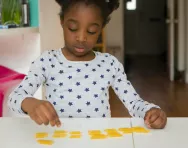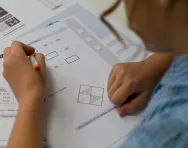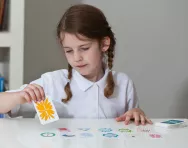Important update from TheSchoolRun
For the past 13 years, TheSchoolRun has been run by a small team of mums working from home, dedicated to providing quality educational resources to primary school parents. Unfortunately, rising supplier costs and falling revenue have made it impossible for us to continue operating, and we’ve had to make the difficult decision to close. The good news: We’ve arranged for another educational provider to take over many of our resources. These will be hosted on a new portal, where the content will be updated and expanded to support your child’s learning.
What this means for subscribers:
- Your subscription is still active, and for now, you can keep using the website as normal — just log in with your usual details to access all our articles and resources*.
- In a few months, all resources will move to the new portal. You’ll continue to have access there until your subscription ends. We’ll send you full details nearer the time.
- As a thank you for your support, we’ll also be sending you 16 primary school eBooks (worth £108.84) to download and keep.
A few changes to be aware of:
- The Learning Journey weekly email has ended, but your child’s plan will still be updated on your dashboard each Monday. Just log in to see the recommended worksheets.
- The 11+ weekly emails have now ended. We sent you all the remaining emails in the series at the end of March — please check your inbox (and spam folder) if you haven’t seen them. You can also follow the full programme here: 11+ Learning Journey.
If you have any questions, please contact us at [email protected]. Thank you for being part of our journey it’s been a privilege to support your family’s learning.
*If you need to reset your password, it will still work as usual. Please check your spam folder if the reset email doesn’t appear in your inbox.
Easy ways to engage your child with maths

Is maths is your child’s tricky subject? Try a few simple strategies to boost their interest in numbers and help them adopt a new approach to their arithmetic assignments.
Step one: have a positive approach
“Being positive about maths is hugely important,” says Lizzie Tubbs, previous Support Manager at Number Partners. “Many parents doubt their own maths skills, and it’s important not to convey this to children and to empower them to feel that they can do it!”


Boost Your Child's English & Maths!
- Weekly programme for each school year
- Worksheets sent direct to your inbox
- Keeps your child's learning on track
“It's fun and useful to focus on mental maths skills,” says Lizzie. “Often, children don't realise they're learning if the activities are engaging!
“It's also useful to ask children to explain how they came to their answer,” Lizzie continues. “This consolidates their learning.”
Step two: encourage independent learning
“A positive attitude towards learning will encourage kids to learn,” agrees Davina Greaves from maths tutoring company Kumon. It’s also important to understand what your child knows and tailor the activities you are doing with them appropriately. “Parents should try to find what it is their child can do,” explains Davina. “The work has to be right for the child.” Ask your child about their maths classes, and try to find out what they enjoy.
And don’t always jump up to answer every question your child has – encourage them to think through a problem to reach the answer on their own. “Enjoying learning and feeling confident in learning is linked to doing it yourself,” explains Davina. “That’s why the Kumon methods encourage children to become independent learners.”
Step three: put maths into practice
Showing your children that maths is more than a sheet of homework very night will help them see how it can be useful in a multitude of ways. “Help your child think mathematically,” says Sue Southwood, Programme Director of Literacy, Language and Numeracy at The National Institute of Adult Continuing Education (NIACE). “Talk about maths, and make it relevant and fun.”
For instance, ask your children to figure out how much time it takes to walk to school, or quiz them on weights and measures while you’re baking their favourite cake together at home. “Children may think that parents don’t use maths, but show them that you do,” says Sue.
Through Maths4us, an organisation that encourages adults to improve their numeracy skills, Sue sees plenty of people who had bad experiences with maths when they were in school. “Lots of adults have stories about bad maths teaching, but methods have changed so much over the years,” she explains.
It’s now the norm to encourage students to work through problems themselves, and understand the concepts that help them reach the correct answer whether they get it straight away or not. So, by doing this at home, you can support the learning style that they’re getting at school.
Engaging your child with maths involves more than homework help – the right attitude, positive encouragement and a different approach can make maths click for kids in a whole new way. Keep adding to your list of engaging maths-related activities and homework help methods, and try new things to keep study sessions fresh and fun.








